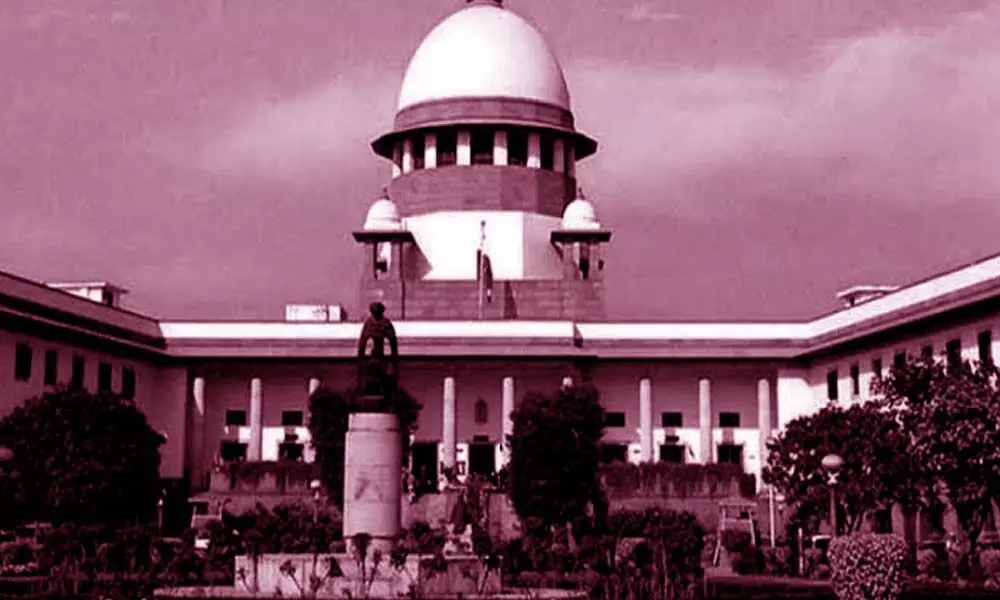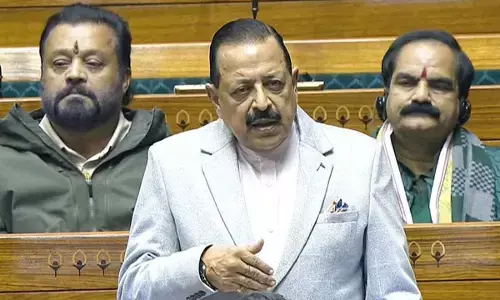SC refuses to entertain plea of judge for quashing notice in sexual harassment case
 Supreme Court. (File Photo | PTI)
Supreme Court. (File Photo | PTI)A vacation bench of Justices Indira Banerjee and Surya Kant granted liberty to the district judge to withdraw the petition and avail such other remedies as may be available in law.
New Delhi: The Supreme Court Thursday refused to entertain a plea filed by a district judge of Madhya Pradesh seeking quashing of show cause notice as also subsequent proceedings pertaining to allegations of sexual harassment levelled against him by a woman judicial officer .
A vacation bench of Justices Indira Banerjee and Surya Kant granted liberty to the district judge to withdraw the petition and avail such other remedies as may be available in law.
Senior advocates Mukul Rohatgi and R Balasubramanian, appearing for the district judge who claimed to be in the zone of consideration for elevation to high court judgeship, challenged the issuance of show cause notice by the Principal Registrar of Madhya Pradesh High Court.
The bench said that the plea is not a fit case for invoking Article 32 of the Constitution.
In his plea filed through advocate Sachin Sharma, the district Judge said he is challenging the "arbitrary and illegal" final report submitted by the Gender Sensitization and Internal Complaint Committee (GSICC) and consequential issue of show cause notice by the high court in proceeding towards conduct of a denovo disciplinary inquiry against him.
"It is pertinent to mention that petitioner has an unblemished career spanning over 32 years with sterling record of service. The petitioner is due to superannuate at the end of the year, 2020 and he is at the fag end of his service."
"Further, the entire action is visited with arbitrariness, mala fide and in complete violation of the principles of natural justice by holding enquiry and or recording statements behind the back of the petitioner at different stages without participation of the petitioner," he said, in his plea.
The district judge alleged that all these actions have been done at a time when he is in the zone of consideration for being considered for elevation and the action has apparently been kept pending for last more than two years with a view to harm his career prospects.
"This is a classic case where the facts are speaking for themselves as to how the GSICC, completely negated the provisions of Section 10 of the Sexual Harassment of Women at Workplace (Prevention, Prohibition and Redressal) Act, 2013, by rejecting the application for conciliation submitted by the complainant," the plea said.
His plea contended that the GSICC acted as if it is a Court of law by rejecting the said application whereas, it is mandated in law that it shall record a settlement once a conciliation application is submitted by the complainant.
"The GSICC/ICC (Internal Complaint Committee) being creation of a statute is bound by the provisions of the Act and it cannot traverse beyond as if it is a Court of law," the plea said.
The district judge said that there is no power vested with the GSICC to conduct the inquiry in the present case once a conciliation application is submitted by the complainant and the GSICC has also no power to form its own opinion on the conciliation application.
"In the present case, the GSICC not only submitted its final report dated April 30, 2020, contrary to law recommending action against the petitioner, but it went ahead a step further and did not hesitate to strongly recommend that action be taken against the Complainant for not willing to proceed with the inquiry," the plea added.
It said the dismissal of Conciliation application by the GSICC and consequently submission of final report, by the GSICC itself both are simply unsustainable in law.
"The GSICC had inquired the complaint in detail. During the inquiry, nothing came on record against the petitioner. Even the GSICC concluded in its Final Report that charges of sexual harassment have not found proved against the petitioner."
"Thus, the action of the GSICC making its recommendation for initiation of disciplinary inquiry proceedings, against the petitioner is self-contradictory and it is well beyond the powers conferred on it under the act, the rules, the Regulations 2015 and the service law applicable to the petitioner," it said.

















